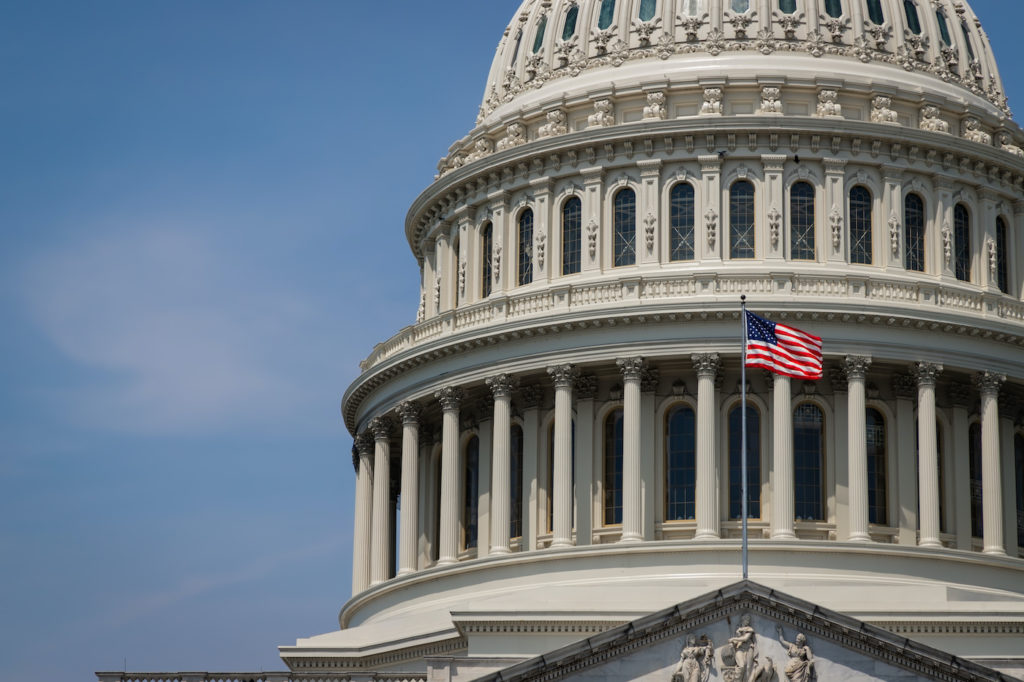Bad, bad, bad: generally, that was the media’s view of Kevin McCarthy’s contentious election to the speakership of the House of Representatives. Reporters and headline writers heaped scorn on the process. It was a “debacle,” a “disaster,” a “crisis,” and “chaos,” they intoned. Some media went so far as to pronounce the twenty-one dissenting GOP members nihilists engaging in nothing more than performative outrage.
For sure, Mr. McCarthy had a rough ride. He had to endure fifteen rounds of floor votes over three long days before securing a majority. Clearly, he had no fun sitting silently as fellow members of the GOP questioned his conservative credentials and nominated a slew of other individuals to the position he has sought for years. The House has not had an open, serious debate over who should be speaker since 1923, when it took nine rounds of ballots before the chamber settled on Frederick Gillette (R-MA), who lasted all of two years in the position. And, yes, C-SPAN viewers certainly saw some performative politics, such as when Florida Rep. Matt Gaetz nominated former President Donald Trump.
Now that a couple of weeks have passed and the noise has begun to subside, we can take a broader view of what McCarthy’s election suggests about Congress and the state of American politics. The media had it wrong: to equate Mr. McCarthy’s struggles to win the Speakership with political dysfunction is to grossly misunderstand both politics and Congress. In truth, the long debate over who should be speaker was a healthy expression of Madisonian transactional politics, and it helped illuminate the path toward restoring the people’s House as the seat of American self-government.
The media had it wrong: to equate Mr. McCarthy’s struggles to win the speakership with political dysfunction is to grossly misunderstand both politics and Congress.
Start your day with Public Discourse
Sign up and get our daily essays sent straight to your inbox.High-Stakes Battle
Floor fights over the speakership are rare, but intra-party scrums over who gets to lead the chamber are commonplace. Understanding why this is the case requires reminding ourselves of the nature of democratic politics.
It is, as James Madison instructed in Federalist No. 10, both an individualistic and a group struggle of contending interests all seeking power:
As long as the reason of man continues [to be] fallible, and he is at liberty to exercise it, different opinions will be formed. . . . A a zeal for different opinions concerning religion, concerning government, and many other points, as well of speculation as of practice; an attachment to different leaders ambitiously contending for pre-eminence and power; or to persons of other descriptions whose fortunes have been interesting to the human passions, have, in turn, divided mankind into parties, inflamed them with mutual animosity, and rendered them much more disposed to vex and oppress each other than to cooperate for their common good.
The decision to pick a speaker is a high-stakes enterprise. The speakership is a position with power; it has great sway over the House’s legislative agenda and resources. The modern-day speaker is a major player in national governance, and gets to negotiate directly with the head of the Senate and the president. Naturally, any legislator asked to support any particular candidate for the job inevitably will ask himself: What do I and my home state’s constituents get for my support?
Usually the competitions for the speakership occur almost entirely outside the public view. Congressmen who want to be the chamber’s top dog must earn their fellow partisans’ votes through wheedling, performing favors for them (such as supporting their bills and hosting fundraisers), and promising them benefits (like positions on committees). It is a grubby transactional process for anyone to get the support of 218 legislators (the minimum majority) from within his party.
Former Speaker Nancy Pelosi is a classic example. She out-hustled Maryland Democrat Steny Hoyer to first win the speakership in 2007. After Democrats lost their House majority in the 2010 election, Pelosi shouldered much of the blame. Long knives were unsheathed, and some Democrats who ran for office in subsequent years campaigned to fight a future Pelosi speakership. The gentlelady from San Francisco spent years lining up supporters within the House Democratic caucus. Big Democratic wins in the 2018 election gave her 236 Democrats to choose from to get to 218 votes. Two years later, the Democratic majority shrank to ten, and Pelosi’s bid for the speakership could have failed. In the weeks before the floor vote, she pleaded for votes with factions (some younger, some more moderate, some much more liberal) within her party. Pelosi won them over by capitulating to their demands for various rules changes and their mandate that she serve no more than two additional terms as speaker.
Devolving the Speaker’s Power
Kevin McCarthy’s road was even tougher.
He first made a run at the speakership in 2015, but fell short. He was opposed by a corps of House conservatives who thought he was too close to lobbyists and a bit too eager to work with Democrats. Others simply did not like him personally. A media report describing McCarthy’s 2015 bid could have been reissued after the House’s first 2022 ballot: “A source close to McCarthy told CNN the decision to drop out came down to ‘numbers, pure and simple,’ adding that ‘he had the votes to win the [Republican] conference vote, but there just wasn’t a path to 218.’” Republicans, who had dumped Speaker John Boehner (OH), settled on Rep. Paul Ryan of Wisconsin after much debate and deliberation.
Come summer 2022, there were clear signs that McCarthy’s long quest for the speakership faced hurdles. The House Freedom Caucus (HFC), a faction of perhaps three dozen GOP lawmakers, went public with their long-simmering, private dispute with Minority Leader McCarthy. For years they had complained that various GOP speakers had marginalized them and their Tea Party forebears. Many HFC members felt the party too often ignored their legislative priorities. Others were vexed that McCarthy had used his political action committee to fund primary challengers to HFC members and HFC-favored candidates.
But their anger toward McCarthy was not merely personal; their concerns also were institutional. “The leaders of both political parties have consolidated so much power that most Members of Congress have no meaningful role in the legislative process beyond voting up or down,” they observed in a memorandum. Restoring the people’s House, the HFC contended, required changes to Republican conference and House rules to devolve power from the speaker to committees and individual members, and, naturally, to the HFC.
This is not an idiosyncratic right-wing critique. Scholars, media, and legislators from both parties (including former Speaker Ryan) have also highlighted the costs of power flowing upward to the speaker.
The House increasingly devolves into a zero-sum battle between two polarized parties whose members see few incentives to find common ground.
Until about a half century ago, the House was a place where representatives of America’s diverse interests had opportunities to bargain with one another to forge bipartisan compromises. The process was often messy, with bills being debated and amended in committee and then on the floor, but it tended to work. Legislators got to be lawmakers, and the speaker was very much a facilitator who partnered with powerful committee chairs to get things done.
There is far less of that these days. More and more the speaker and his leadership team draft bills (often omnibuses) and present them to the chamber for an up-or-down vote. Legislators often hate being told to vote promptly on bills running hundreds if not thousands of pages, without any opportunity to read them, to say nothing of debating and amending them. And the House increasingly devolves into a zero-sum battle between two polarized parties whose members see few incentives to find common ground.
Mr. McCarthy might have avoided the trouble had he agreed to all of the HFC’s demands to decentralize power from the speaker role long before January. But he did not, quite probably for two reasons.
First, the success of a speaker depends in great part on his ability to assemble majorities to pass legislation. Doing that, he probably reasoned, requires holding on to all his powers rather than giving them away.
Second, he and many observers predicted a red wave in November that would sweep in a GOP majority of 230 or even more. Winning the speakership requires 218 yeas, so he may have seen little sense in caving to the half dozen HFC members who had publicly declared they would oppose a McCarthy speakership.
Bargaining across difference is what a legislature is supposed to do, and legislators need the power to do just that.
When that red wave did not come in, McCarthy was in a bind. He needed the support of 218 of the 222 GOP members. HFC legislators saw they had leverage and used it. The Not-Kevin votes grew from a half-dozen to thirty-one when the GOP conference met the week after the election. Absent immediate McCarthy capitulation, a floor fight was all but certain to occur, and did. McCarthy agreed to rules changes that permitted legislators to offer amendments on some bills that are brought to the floor, and gave HFC members a few seats on the mighty Rules Committee. He also agreed to allow votes on bills favored by the right wing of the GOP, and restored the rule allowing any GOP legislator to move to unseat McCarthy as speaker. All of which goes a long way to restoring balance between the powers of the speaker and the rest of the House.
Had James Madison been watching on C-SPAN, he would not have been surprised by the long debates and many rounds of votes. Humans are flawed beings partial to their own views, and liberty foments diversity. Congress is the place where ambition is supposed to counter ambition, and where interests are supposed to collide. Bargaining across difference is what a legislature is supposed to do, and legislators need the power to do just that.
Yet Mr. Madison quite possibly would have shaken his head in disbelief at the media’s relentless framing of the battle for the speakership as political dysfunction. And, no fan of parties, he also might well have guffawed at the media’s presumption that the representatives assembled should behave as partisans rather than legislators representing distinct districts. Nonetheless, the fight over the speakership was a healthy development for the institution, and we should welcome the House of Representatives’ return to the cacophonous, disputatious place the Founders designed it to be.














